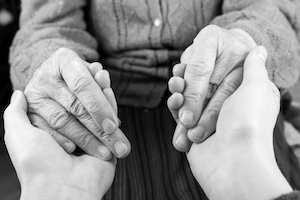Nursing Home Litigation
 Placing a loved one in a nursing home can be a devastating and stressful decision. But, if that time comes, we trust that our loved one will be cared for properly by the facility - medically, psychologically, financially, and with dignity and respect in order to provide a reasonable quality of life.
Placing a loved one in a nursing home can be a devastating and stressful decision. But, if that time comes, we trust that our loved one will be cared for properly by the facility - medically, psychologically, financially, and with dignity and respect in order to provide a reasonable quality of life.
But, unfortunately, such treatment is not always the case.
Nursing home litigation may be pursued to hold a nursing home accountable for negligence or abuse in areas such as:
If you feel a loved one has been victimized by a nursing home financially speak to our litigation team today. We have a strong track record representing Connecticut residents with matters related to nursing facility actions and would be happy to assist you.
 Hartford County Elder Law Lawyers Czepiga Daly Pope & Perri Home
Hartford County Elder Law Lawyers Czepiga Daly Pope & Perri Home


